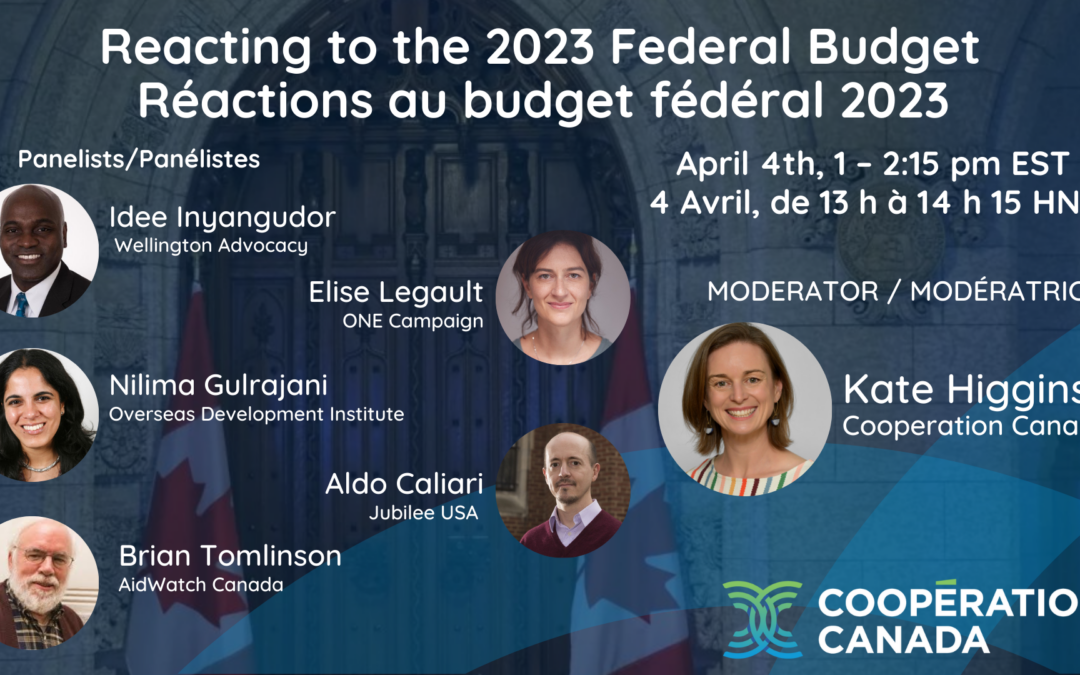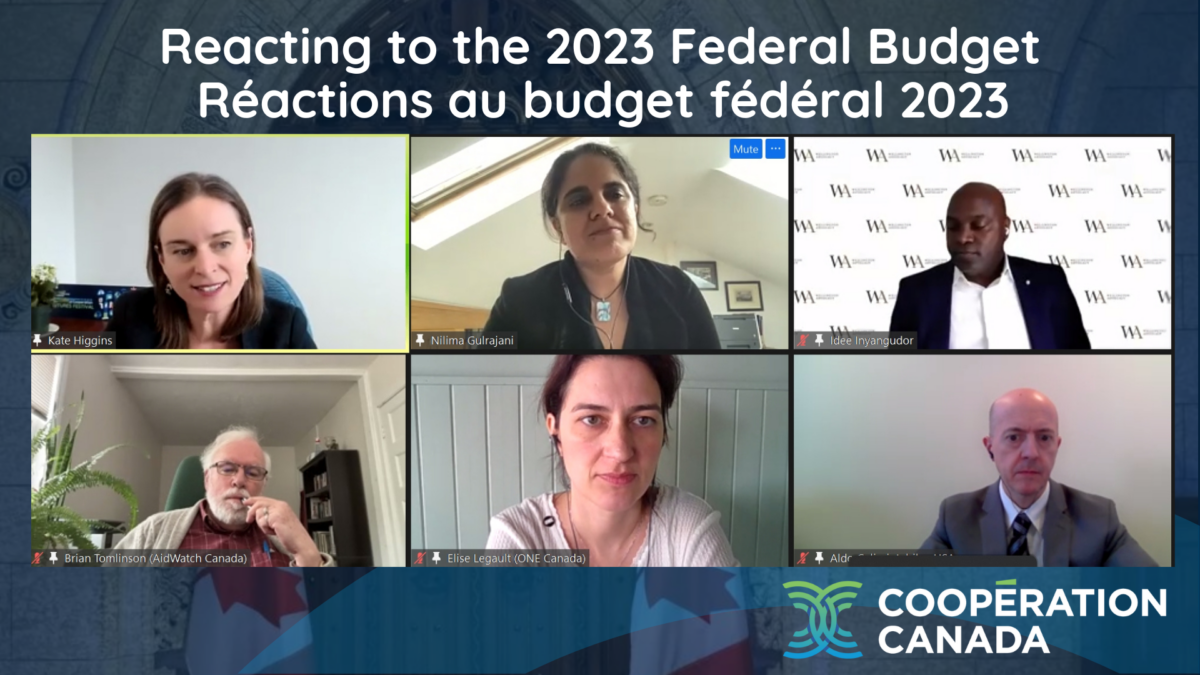On April 4, 2023, Cooperation Canada organized a panel discussion to examine Canadian aid trends, reflect on the 2023 Federal Budget, which was tabled on 28 March, 2023, and discuss its connections with the global cooperation architecture. The panel, moderated by Kate Higgins, CEO of Cooperation Canada, comprised of Aldo Caliari (Jubilee USA), Nilima Gulrajani (ODI), Idee Inyangudor (Wellington Advocacy), Elise Legault (ONE Campaign), and Brian Tomlinson (AidWatch Canada).
In the first part of the event, Brian Tomlinson presented an overview of trends in Canada’s international assistance, describing the various funding flows, the government agencies delivering international assistance, the implementing agencies, and the breakdown of Official Development Assistance (ODA) by components, including development, humanitarian assistance, climate finance and in-donor refugee and student costs. The presentation highlighted that the addition of COVID-19 spending and in-country refugee costs increased Canada’s ODA, but when these components were removed, funding for development decreased between 2019 and 2021. This downward trend was confirmed by Budget 2023, which projects an international assistance envelope of $6.8 billion, a 15% cut from the international assistance budget committed in Budget 2022, a decision heavily criticized by Canadian civil society organizations (CSOs) working in international cooperation and humanitarian assistance.
Following the presentation, the panel acknowledged that the 2023 Federal Budget, though expected to be fiscally prudent, was a missed opportunity for Canada to demonstrate global leadership. The possibility of off-cycle funding announcements in the coming months neither mitigates the sector disappointment, nor constitutes sound public policy, unless Canada decides to transparently present the federal budget as a floor rather than a ceiling. As the defence budget is growing, it was proposed that one way Canada’s feminist vision could be better demonstrated could be to adopt a lock-step approach, aligning defence and development spending.
Putting Budget 2023 in a global perspective, panel members noted the imperative to regain the ground lost during the COVID-19 pandemic and make faster progress towards the Sustainable Development Goals. The current global financial system is clearly not fit for the multiplicity of shocks facing the planet. On the one hand, OECD countries are pressured to address inflation and focus on domestic needs. On the other hand, developing countries grapple with an escalating debt burden resulting from the combination of insufficient concessional finance, forced reliance on expensive private lending to meet their basic needs, slow deployment of pledged climate finance, and limited access to the Special Drawing Rights, the reserve asset maintained by the International Monetary Fund (IMF).
Against this bleak backdrop, the panel agreed that new models of resource mobilization are urgently needed. This requires going beyond the narratives advocating for aid increases and exploring ways to do more with available resources, including dormant private capital. In terms of blending public and private resources for development, Canada has been playing catch-up for too long, with FinDev not delivering on expected results. Canada should become more strategic in leveraging private sector instruments as soft power assets.
The panel closed with remarks about what lies ahead for international cooperation actors globally and in Canada. The inadequacy of the international assistance architecture is acknowledged by many, including the OECD – Development Assistance Committee (DAC), in their most recent report, Debating the Aid System. There are emerging perspectives departing from the mainstream North-South development dichotomy and embracing the view of development as a global reality shared by all countries. One such narrative proposes to reframe ODA as a distributed investment in global public goods. Given this and other emerging perspectives challenging the paternalistic aid approach, international cooperation actors in Canada, in particular CSOs, should take the opportunity to engage in broader development conversations about the quantity and quality of aid, refocusing their attention on development outcomes.
Cooperation Canada looks forward to continuing to convene conversations on these critical issues as we work to position ourselves, and support others, to be relevant and effective partners in contributing to a fairer, safer and more sustainable world.
No member found


